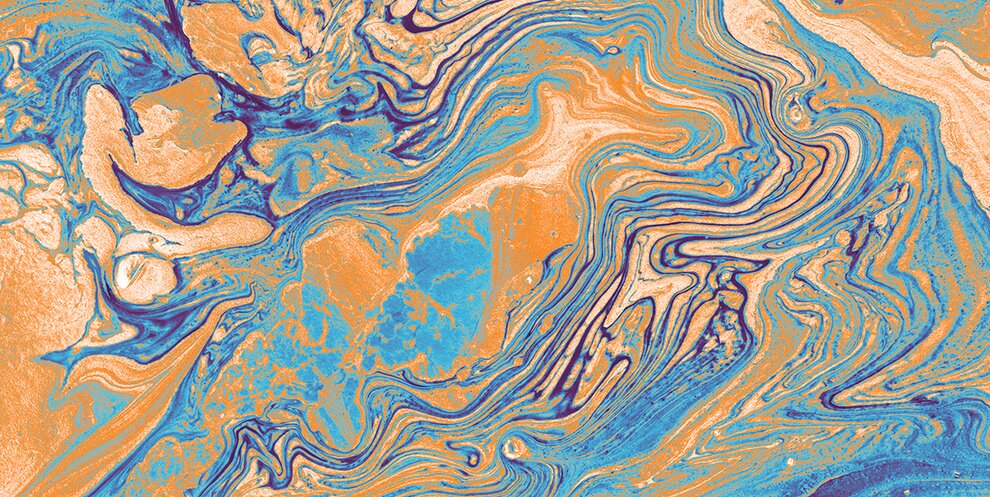Autumn at Éditions de la MSH

L’histoire mesure le monde, l’amour et la souffrance. Globale, multiséculaire, courte, mouvementée.
Les sciences sociales interrogent le politique, les paradoxes et les préjugés.
Les arts affinent leurs matériaux et leur graphisme.
L’anthropologie tient au sol. À un éventuel universel aussi.
Jamais véritablement seules, toutes les sciences humaines se croisent dans les interstices de notre rentrée.
This autumn of 2025, Éditions de la MSH delves into what endures, what diverges, and what resurfaces. From Canada to the banks of the Nile, from the archives of a captive historian to the materials of modern art, from democratic consent to graphic forms of writing, disciplines engage in dialogue and respond to one another. Discover the forthcoming french titles for autumn 2025.
Tous ici pour rester. Repenser les traités et droits des autochtones au Canada
Michael Asch – "Amérique(s)" Collection
What justifies the proclamation of Canadian state sovereignty and jurisdiction over such vast territory, if not the weight of its majority population and its power to assert itself? Why should the First Peoples of Canada have to claim rights over lands that were already theirs when the settlers arrived?
In Tous ici pour rester, Michael Asch re-examines the history of Canada through the lens of ancestral rights and the relationships between First Nations and settlers.
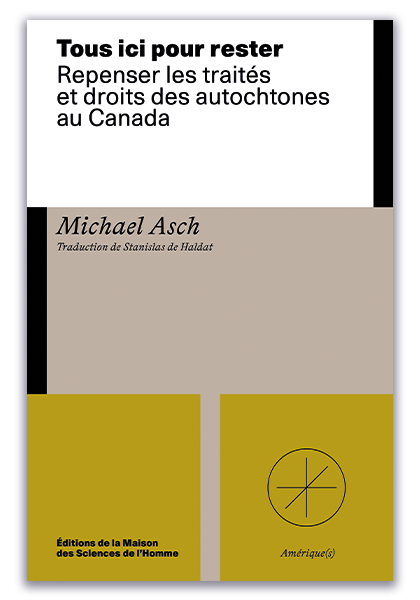
"Tous ici pour rester"
Patrimoines, mémoires et politiques
Polygraphes, approches métissées des actes graphiques n°7
Graphic acts serve simultaneously as media, tools, and vehicles of memory—from their creation to their eventual heritage status. Whether images or signs on walls and objects, selective inscriptions or complete writings, these graphic productions transmit and record narratives, histories, and forms of knowledge that shape the collective memory of human societies, or are mobilised within political or heritage strategies. The seventh issue of the journal Polygraphe(s) thus explores the relationships between graphic acts and memory within the context of their production.
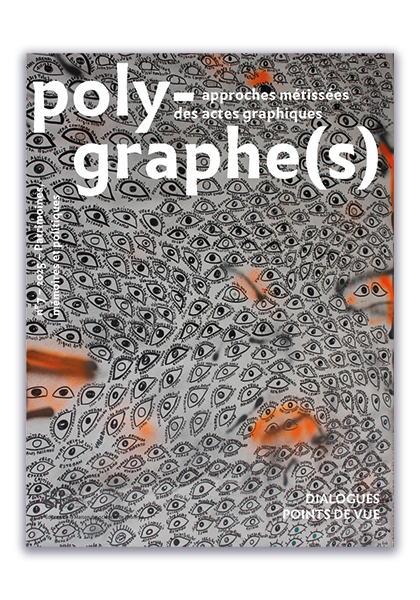
"Polygraphes", approches métissées des actes graphiques n°7
Les Nouvelles de l’archéologie n° 179. Discussion autour d’Alain Testart
Les Nouvelles de l’archéologie
This issue of Nouvelles de l’archéologie is dedicated to the French anthropologist Alain Testart (1945–2013).
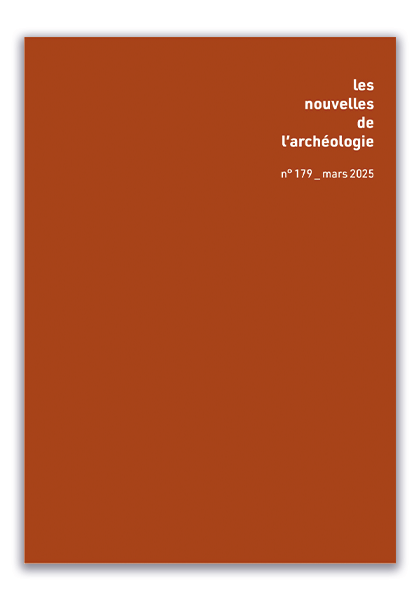
Les Nouvelles de l'archéologie n°179, mars 2025
Le paradoxe de la fuite. De notre rapport contradictoire aux migrations forcées et aux personnes déplacées
Judith Kohlenberger – "Bibliothèque allemande" Collection
The flight to Europe is paradoxical: one must break the law—that is, cross borders “illegally”—in order to obtain the right to asylum. Judith Kohlenberger, a migration specialist, offers here a detailed analysis of how expulsions and displaced persons are handled. The author demonstrates how it is possible to achieve a humane asylum and integration policy, provided we accept our moral responsibility and place trust in the strength of our institutions, the rule of law, and civil society.
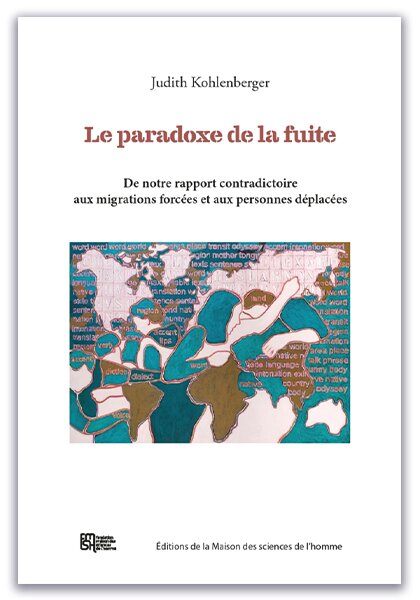
"Le paradoxe de la fuite"
The 54 collection is expanding with a new paperback format!
This new collection aims to make key texts by great thinkers accessible, visible, and affordable. It will pay particular attention to the richness and quality of the sources presented. Equipped with a robust critical apparatus that restores and recontextualises, the books in this series transcend time, withstand it, and are intended to be intrinsically contemporary.
L’histoire, mesure du monde. Conférences de la captivité
Fernand Braudel – "54 poche" Collection
Fernand Braudel’s La Méditerranée was written in captivity during the Second World War, on school exercise books within the walls of prisons in Mainz and Lübeck. Almost all readers of La Méditerranée are familiar with this episode. What is less well known is that at the same time Braudel delivered a series of lectures on history to his fellow prisoners. Addressing methodological questions, he emphasised the importance of la longue durée—long-term history—contrasting it with event-based history. Advocating interdisciplinarity with the social sciences, economics, and geography, he proposed studying the interactions between human society and its geographical environment through geo-history.
This foundational work of Braudelian thought and global history is now accessible once again.
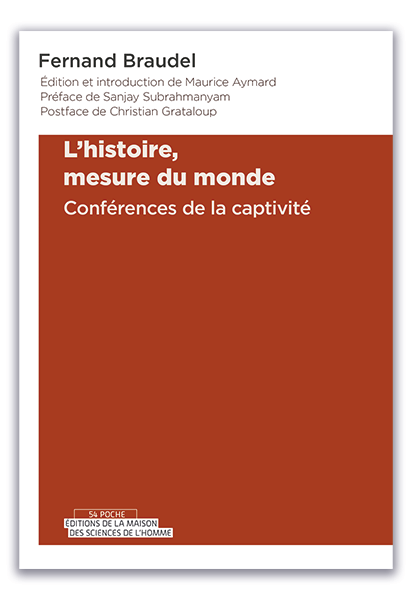
"L’histoire, mesure du monde. Conférences de la captivité"
Du préjugé. Suivi d’une discussion
Max Horkheimer – « 54 poche » Collection
This is the first French translation of Max Horkheimer’s short essay on prejudice (Vom Vorurteil), in which he analyses the nature and impact of prejudice in society.
Horkheimer explains that prejudices are instilled from a very young age and reinforced by institutions such as the family, school, and the media, serving to maintain power hierarchies and justify exploitation. He also explores the psychological dimension of prejudice, particularly how it responds to emotional needs and offers a false sense of superiority.
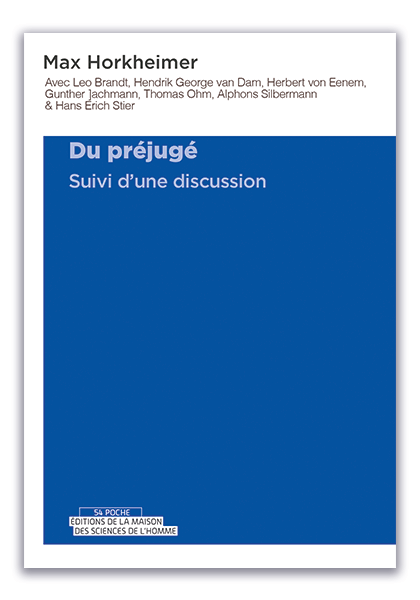
"Du préjugé"
Passé, présent, futur du système-monde capitaliste. Textes inédits
Immanuel Wallerstein – "54 poche" Collection
Immanuel Wallerstein was a prolific author whose work transcends disciplinary boundaries and culminates in a multi-century history of capitalism and modernity from the 15th century to the present day on a global scale—what he terms the modern world-system. Yet, Wallerstein has been little translated into French. Who knows that Wallerstein undertook forward-looking work on the decline of American hegemony and the crisis of capitalism? Who knows that he anticipated some of the current geopolitical rearrangements as early as the 1990s through his analysis of world-systems?
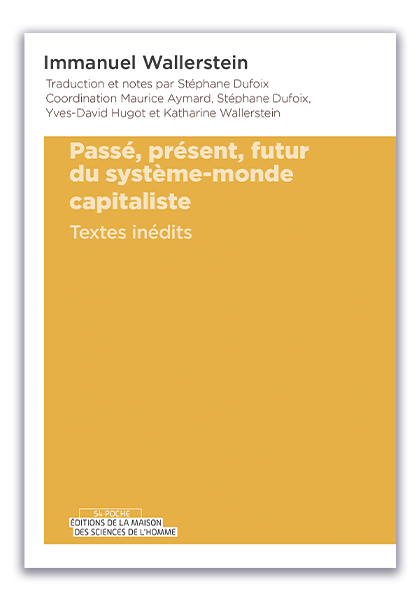
"Passé, présent, futur du système-monde capitaliste"
Liberté et calcul. La politique des algorithmes
Sabine Müller-Mall – "Interventions" Collection
Algorithms play an increasingly important role in our social lives—shaping opinion polls, electoral behaviour, and advertising. Above all, they influence how the social can become political. Therefore, we cannot simply use algorithms or accept their use; we must fundamentally clarify where and how we want to apply them. By recognising them as political and addressing them democratically, we can avoid the risk of submitting to them and thereby depoliticising society.
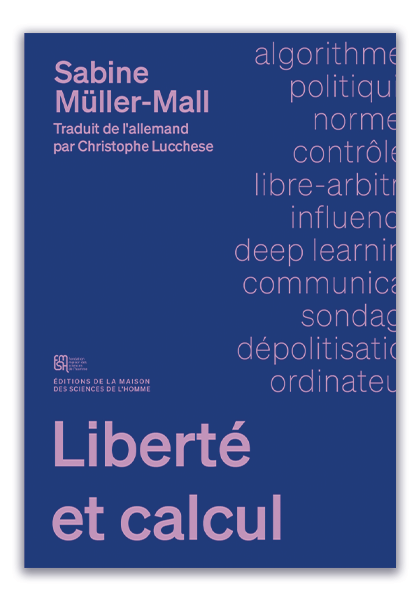
"Liberté et calcul"
De l’amour et de la souffrance. L’Institut berlinois de science sexuelle (1919-1933)
Rainer Herrn – "Bibliothèque allemande" Collection
When Magnus Hirschfeld opened his institute in Berlin in 1919, the young discipline of sexual science seemed destined for a bright future. Patients and visitors from around the world came there to obtain information on contraception or protection against sexually transmitted diseases. For many, the institute represented a unique space where it was possible to speak openly about their experiences and the distress related to discovering their sexual orientation, in a social context often marked by hostility. Rainer Herrn tells, for the first time, the eventful history of this famous institution.
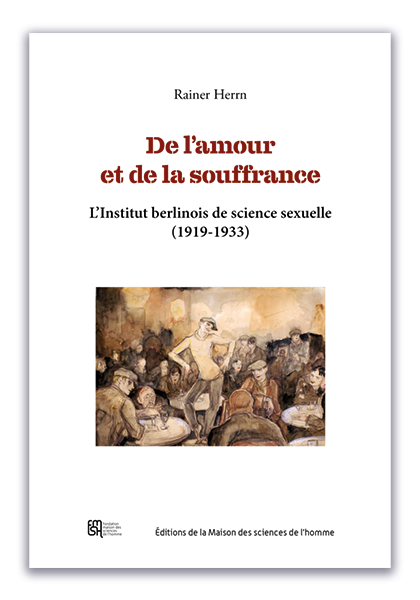
"De l'amour et de la souffrance"
Histoire de la méritocratie et de la décadence. L’élan républicain égyptien empêché
Mohamed Naeem – "Afrique(s)" Collection
Mohamed Naeem’s essay analyses the failure of the 2011 Egyptian revolution and the difficulty of building a republican citizenship since the proclamation of Egypt’s First Republic in 1953. Through the concepts of “meritocracy,” symbolising periods of social advancement based on merit, and “decadence,” reflecting selfish and morally deficient behaviour, the author reveals deep tensions at the heart of Egyptian society. Mohamed Naeem explores the paradoxes of a society marked by relative abundance, where the fear of scarcity fuels an obsessive desire for material accumulation, and situates these dynamics within a geopolitical context shaped by American imperialism and the rise of Islamism.
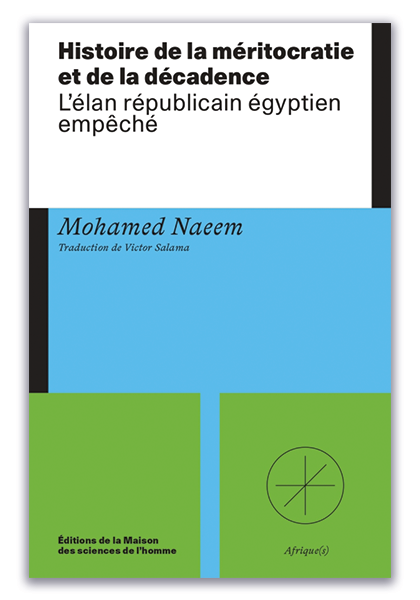
"Histoire de la méritocratie et de la décadence"
Les matériaux. Une autre histoire de l’art moderne
Monika Wagner – "Passages" Collection
Monika Wagner offers here the first comprehensive study of materials in 20th-century art, focusing on their implementation and significance. Through particularly exemplary works, the author considers traditional materials as well as those newly developed or foreign to art, placing them—beyond the personal mythologies of various artists—within the context of their uses and ordinary associations.
The examples Monika Wagner has chosen to elucidate reveal what these materials communicate in the conjunction of their historical uses and their social or gendered assignments. Numerous illustrations accompany and illuminate the analyses of the works studied.
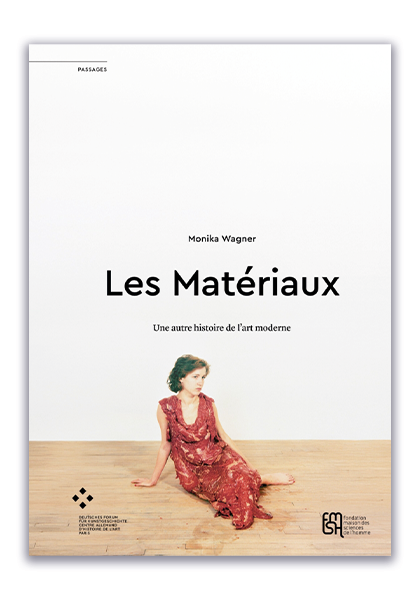
"Les Matériaux"
Éditions de la MSH
Since 1970, Éditions de la MSH has developed an original catalog in the humanities and social sciences, boasting over 1,200 titles. As an expression of the FMSH’s scientific policy, they uphold a tradition of breaking down disciplinary boundaries and maintaining a critical stance, nurtured by the great intellectual figures associated with the Foundation.
By publishing eleven collections and around ten journals, they contribute to shedding light on contemporary transformations. Their current development is guided by three priorities: understanding social and geopolitical phenomena through a global approach, supporting emerging research and innovative methods, and opening new editorial fields through translation—particularly via the collections “Afrique(s),” “Amérique(s),” and “Asie(s).”
Disseminating rigorous yet accessible knowledge
+1,200 titles
11 Collections
7 Journals

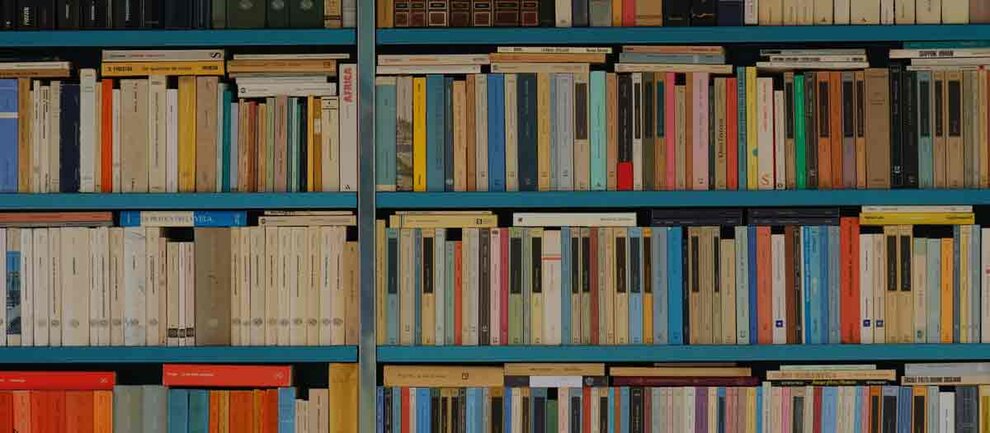
Marché du livre marocain : les Éditions de la MSH engagées dans les dynamiques internationales du livre
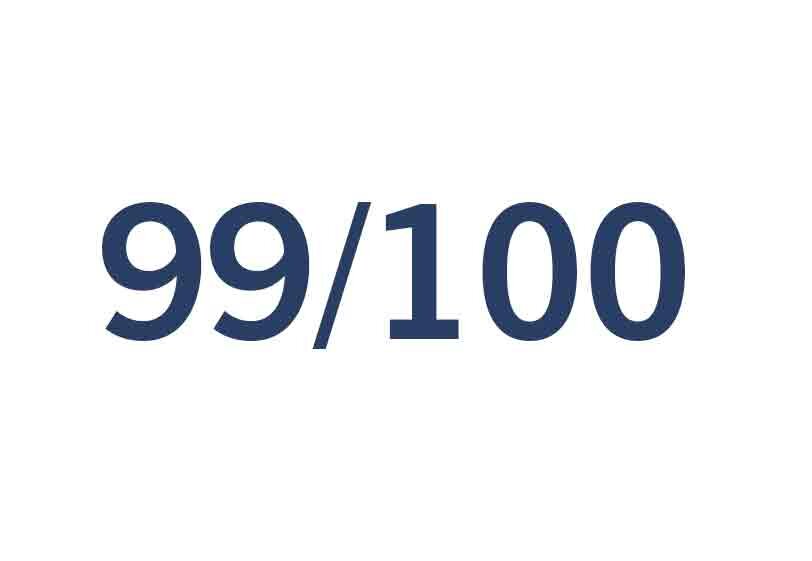
Index de l'égalité professionnelle 2025
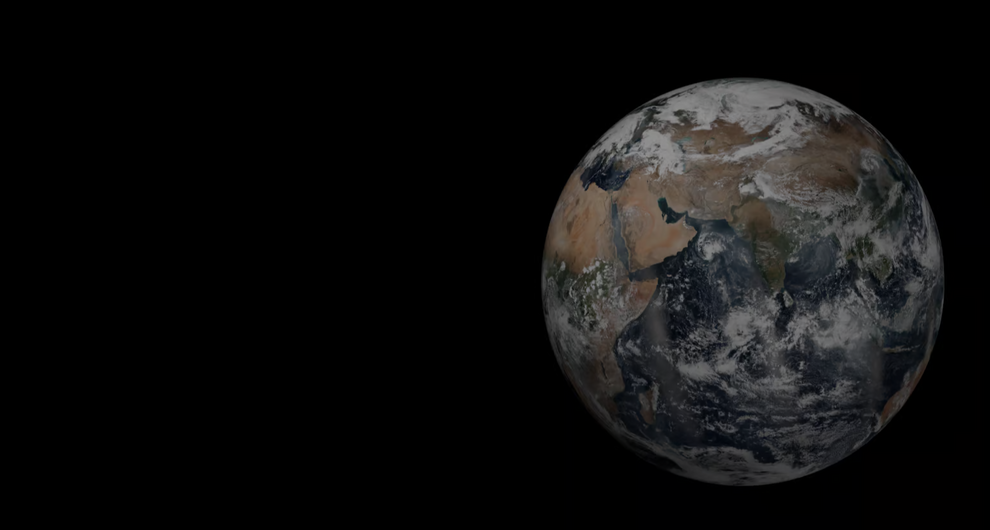
FMSH and the Social Science Research Council Lay the Foundation for International Cooperation
